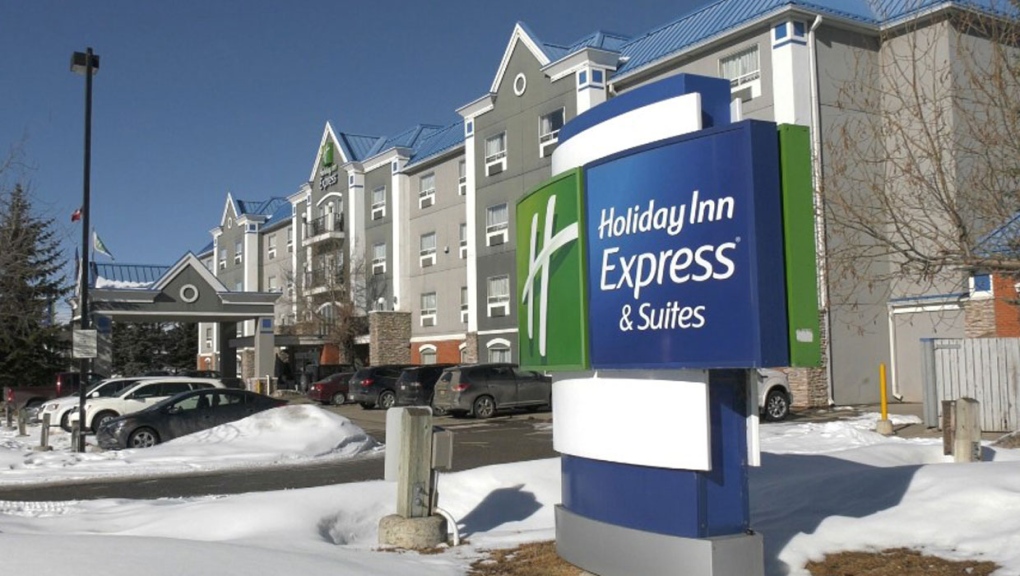'Very long time to recover': Calgary's hospitality industry asks city for more help
 More Alberta businesses could be breathing a sigh of relief as a number of COVID-19 restrictions are expected to be lifted on Monday.
More Alberta businesses could be breathing a sigh of relief as a number of COVID-19 restrictions are expected to be lifted on Monday.
Calgary's hotels are still hurting amid the COVID-19 pandemic and officials are asked to take action, says a letter addressed to city council released Thursday.
The document, from the Calgary Hotel Association (CHA), says while it's grateful the city has agreed to defer municipal property taxes until the end of this year, the industry is still suffering immense financial losses.
That is why it is now requesting an abatement of all utility fees and municipal taxes from Jan. 1 to May 31.
"With the impacts of the new Omicron COVID variant, and more so the impact of the U.S. government's appeal for Americans not to travel to Canada, the result has been disaster for Calgary's hotels," wrote Sol Zia, executive director of the CHA.
"The examples of lost revenue can be seen throughout Calgary and not just downtown."
Zia also says that projections for 2022 indicate lost revenue of more than $500 million, losses that could spell doom for many Calgary entrepreneurs.
"More than half of Calgary's hotels are family-owned and operated businesses, and save Q3 2021, all hotel owners, have been underwriting the operation, payroll, taxes and utilities since March of 2020. Calgary hotels are struggling with cash flow and the ability to cover basic operation, utility and people costs," Zia said.
The CHA says the provincial government has also been contacted with a similar request. That level of government has already abated the Alberta Tourism Levy until March 31, but the CHA wants to see that extended until May 31 for all hotels that can show a 40 per cent or greater drop in revenue.
"The CHA is asking the City of Calgary to consider abatement, following the same formula (40 per cent documented change in revenue for comparable period(s) in 2019), as the government of Alberta, of all City-administered utility fees and all municipal taxes (commercial and otherwise) from Jan. 1, 2022 to May. 31, 2022," Zia wrote.
Zia adds the hospitality industry believes those measures will help prevent hotels from closing due to the COVID-19 pandemic.
"It is clear that Calgary's accommodation sector will take a very long time to recover, and the recovery will be well into the future," Zia said.
"We ask that your government expand its support for Calgary's hotels and are prepared to work closely with you on a plan and course of action to support those hotels in the most precarious situations."
CTV News has reached out to the City of Calgary for a statement on the CHA's letter.
CTVNews.ca Top Stories

More than 115 cases of eye damage reported in Ontario after solar eclipse
More than 115 people who viewed the solar eclipse in Ontario earlier this month experienced eye damage after the event, according to eye doctors in the province.
Last letters of pioneering climber who died on Everest reveal dark side of mountaineering
George Mallory is renowned for being one of the first British mountaineers to attempt to scale the dizzying heights of Mount Everest during the 1920s. Nearly a century later, newly digitized letters shed light on Mallory’s hopes and fears about ascending Everest.
Toxic testing standoff: Family leaves house over air quality
A Sherwood Park family says their new house is uninhabitable. The McNaughton's say they were forced to leave the house after living there for only a week because contaminants inside made it difficult to breathe.
Decoy bear used to catch man who illegally killed a grizzly, B.C. conservation officers say
A man has been handed a lengthy hunting ban and fined thousands of dollars for illegally killing a grizzly bear, B.C. conservation officers say.
Sophie Gregoire Trudeau on navigating post-political life, co-parenting and freedom
Sophie Gregoire Trudeau says there is 'still so much love' between her and Prime Minister Justin Trudeau, as they navigate their post-separation relationship co-parenting their three children.
An emergency slide falls off a Delta Air Lines plane, forcing pilots to return to JFK in New York
An emergency slide fell off a Delta Air Lines jetliner shortly after takeoff Friday from New York, and pilots who felt a vibration in the plane circled back to land safely at JFK Airport.
B.C. seeks ban on public drug use, dialing back decriminalization
The B.C. NDP has asked the federal government to recriminalize public drug use, marking a major shift in the province's approach to addressing the deadly overdose crisis.
'I was scared': Ontario man's car repossessed after missing two repair loan payments
An Ontario man who took out a loan to pay for auto repairs said his car was repossessed after he missed two payments.
First court appearance for boy and girl charged in death of Halifax 16-year-old
A girl and a boy, both 14 years old, made their first appearance today in a Halifax courtroom, where they each face a second-degree murder charge in the stabbing death of a 16-year-old high school student.































